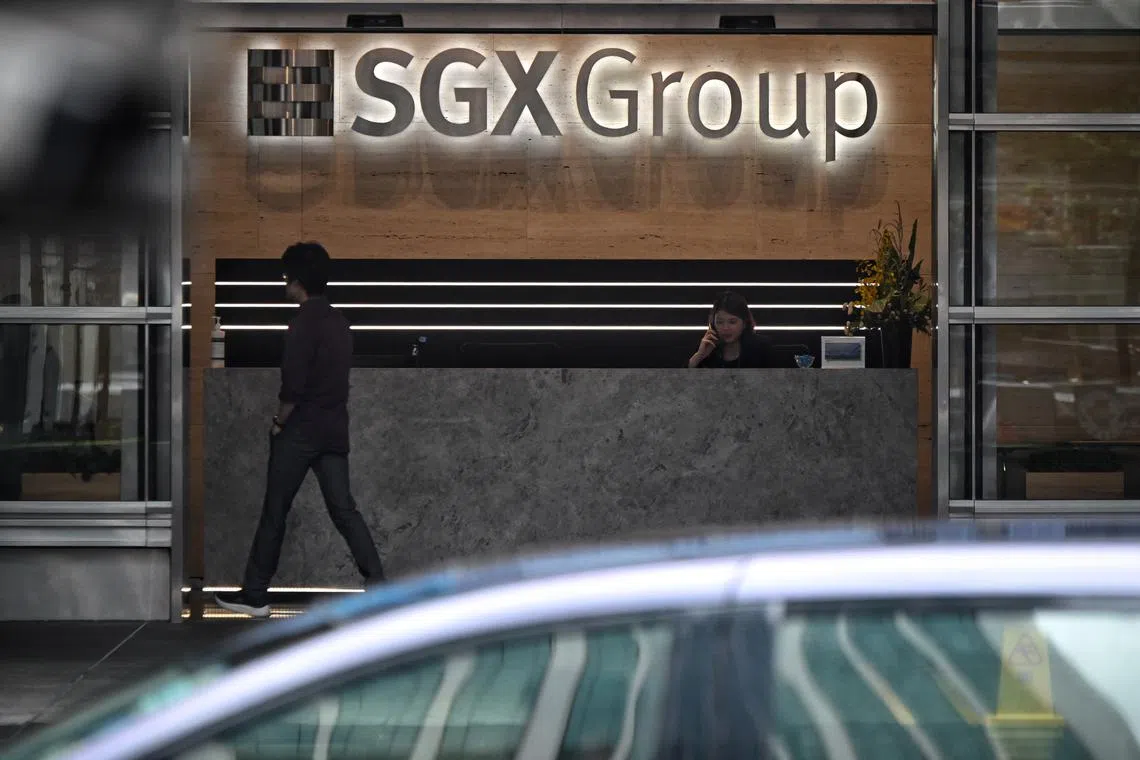Retail investors in Singapore can invest in Thai blue chips from May 30
Sign up now: Get ST's newsletters delivered to your inbox

SGX will launch Singapore Depository Receipts under the DR linkage with the Stock Exchange of Thailand.
ST PHOTO: KUA CHEE SIONG
SINGAPORE - From May 30, retail investors in Singapore can buy and sell shares of Thai blue-chip companies listed on the Stock Exchange of Thailand (SET).
They can do so easily, in the same way that they buy and sell Singapore shares on the Singapore Exchange (SGX).
This is made possible after SGX announced on Tuesday that it will launch Singapore Depository Receipts (SDRs) under the DR linkage with the SET.
This is the first exchange-level cooperation in Asean on depository receipts and is an important step forward in enhancing stock-market connectivity.
Much like American Depositary Receipts in the United States, SDRs are instruments representing interest in an underlying security listed on an overseas exchange, in this case, the Thai stock exchange.
Ms Serene Cai, head of securities trading at SGX Group, said each SDR is issued on a one-to-one basis. This means one SDR represents one share of a Thai company, she said.
She added that just like SGX-traded stocks, the SDRs are traded on the standard board-lot size of 100, where an investor who buys one lot is actually buying 100 SDRs.
The SDRs will trade on SGX during local trading hours; all trades and cash distributions will be denominated in the Singapore dollar. The SDRs will be held in custody in the investor’s Central Depository account.
Mr Michael Syn, senior managing director and head of equities at SGX Group, said the first batch of SDRs are linked to three Thai companies, which ride on the reopening and energy themes.
They comprise Airports of Thailand, Thailand’s largest airport operator; CP All, which operates Thailand’s largest convenience-store chain under the 7-Eleven brand; and PTT Exploration and Production, the only listed exploration and production company in Thailand.
Together, these three companies make up 18 per cent weightage of the benchmark SET50 Index, a large-cap stock market index which tracks the price movements of the top 50 stocks on the Thai stock exchange.
Mr Syn said Thai investors will subsequently have access to Singapore companies in the form of depository receipts listed in Thailand.
“We will take some Singapore companies to Thailand. We are validating with our Thai friends, what shares would you like to buy? Would you like our banks? Would you like real estate investment trusts?”
SGX said there are mutual benefits to linking up with Thailand.
Taking a closer look at the composition of the SET50 Index, Ms Cai said the index is dominated by the manufacturing, energy and consumer sectors.
This is unlike in Singapore, where financials and real estate are more prominent.
“It is a different profile of sectors. We have much less manufacturing, but we have more finance. The growth story on each side is different.
“Our economies are quite complementary,” said Mr Syn.
Addressing concerns about SDRs, Mr Syn said these instruments are not structured products, but are instead fully collateralised and backed one for one by the underlying security.
Mr Syn added that the Singapore and Thai regulators – the Monetary Authority of Singapore and Thailand’s stock market regulator, the Securities and Exchange Commission – have been supportive of the development of the SDRs and the move to link the two exchanges, so the tie-up is structured in a sensible and formally managed way.
Eventually, SGX intends to extend the collaboration to other stock exchanges.
“We have to work market by market. I think the relevant markets are clearly Thailand, Indonesia, Malaysia.
“Then after that, maybe the Philippines and maybe Vietnam. I am making a general statement,” Mr Syn added.
Mr Loh Boon Chye, chief executive of SGX Group, said that with greater connectivity between Singapore and Thailand, investors can widen their investment horizons and participate in the growth potential of Asean.
He added that the SDRs will create more vibrancy in Asean’s capital markets and be the catalyst to spark further collaboration between exchanges in the region.
Mr Pakorn Peetathawatchai, president of the SET, said the linkage facilitates investors’ access from one market directly to another in the local currency.
He said the collaboration is part of his exchange’s commitment to grow connectivity between exchanges in Asean.
On Monday, SGX also announced that it had signed an MOU with the Shanghai Stock Exchange to launch a link for trading exchange-traded funds (ETFs).
The new link builds on the successful listing of three ETFs on the Shenzhen Stock Exchange in 2022.



